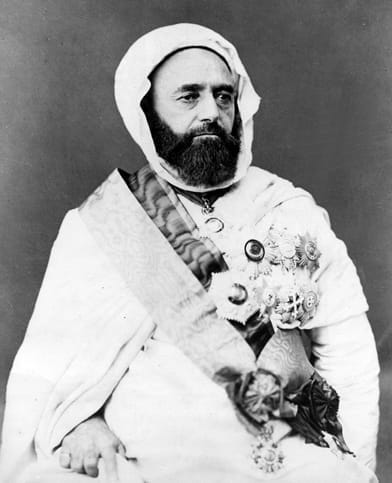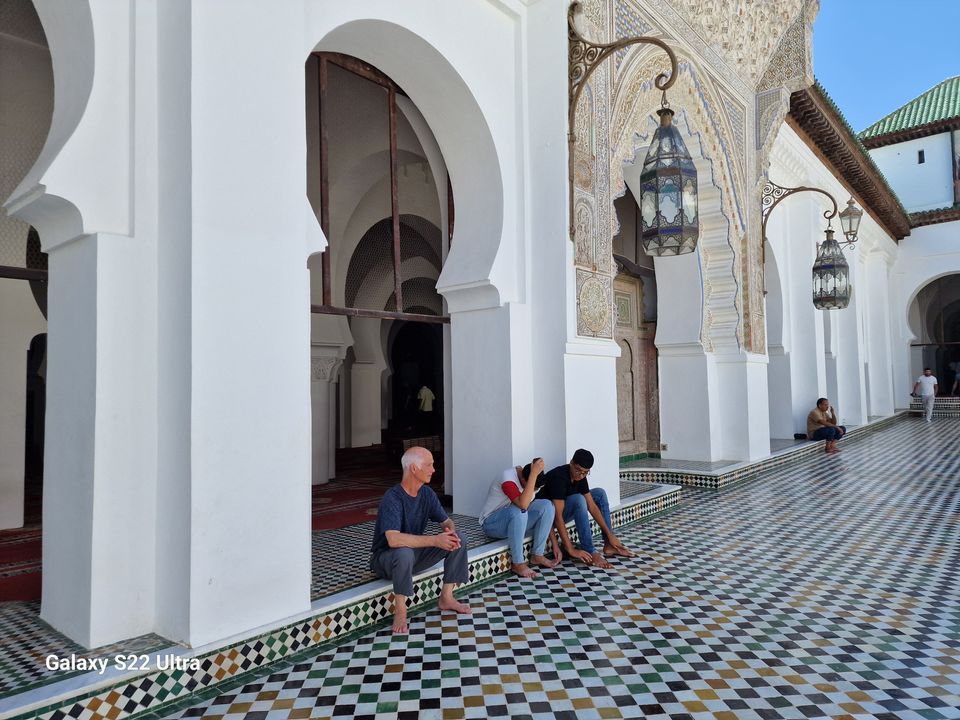#16 The Path to Unity with Ibrahim Jaffe MD and Samah Ross - Part 1

Details of the workshop in Oxford, UK Fri, 10 Nov 2023 17:00 - Sun, 12 Nov 2023 16:00 GMT can be found here
Links:
University of Sufism - Home - University of Sufism https://sufiuniversity.org/
Institute of Spiritual Healing | Bringing Spiritual Healing to people worldwide
BIO
Ibrahim Jaffe, M.D., is a physician, Sufi Master, and spiritual guide (Murshid Murabi Ruhi). As Founder and head of the Institute of Spiritual Healing, University of Sufism and the Ma'rifa Foundation, he is committed to people walking the path of spiritual unity and love. He is the author of God's Way: Sufi Spiritual Healing and the creator of the APIIR-TB divine healing method using the 99 Names of God. Through walking with Dr. Jaffe, people experience deep physical and spiritual healing. Dr. Jaffe's vision is to bring together the Light of all paths and help the world move to Oneness and Peace. His heart holds the tremendous power of unconditional love and gnostic understanding.
Samah Ross, M.A., M. Div, has been a student of Sufism for more than 20 years, and holds a Master's degree in Divinity from the University of Spiritual Healing and Sufism and a Master's in French Literature. Before retiring she worked for 30+ years in government and industry as a global leadership consultant, trainer and executive coach. She is proud to sit on the board of the UK Trust, and to have supported the UK Sufi community through workshops for several years.
Podcast Summary: Path to Unity
Host: Saqib Safdar
Guests: Dr Ibrahim Jaffe and Samah Ross
Spiritual healing is transformative. It is the prescription for travelers on the path of love and the remedy for our collective well-being, returning sacred ground to sacred spaces.
We were inspired to hold this conversation with Master Healers Dr Ibrahim Jaffe and Samah Ross in response to...
their upcoming spiritual healing retreat at Rippon Cuddesdon College, a location ideal for deep spiritual work, healing, and connectivity, also conducive to contemplative being and mystical openings. There, in the beautiful countryside, mother nature’s healing prowess comes alive to help support the soul in its awakening and healing. The venue’s adjacent Church, filled with the love of the Abrahamic religion and glorification of God, brings in the Divine Light and Love to the premise and serves as a retreat spot for hearts yearning for deeper release.
We take the time in this podcast to string together and explain concepts integral to the process of purification, taẓkīyyat-‘l-nafs تزكية النفس)), focusing on Ṣūfīsm (الصوفية) as a whole and painting a realistic picture of what Islāmic spirituality and Ṣūfī Healing (الروحانيات والشفاء الصوفي) is all about. Dr Jaffe defines it simply: “Spiritual healing is nothing more than an outer manifestation of what’s purified in Ṣūfīsm. Spiritual purification and spiritual healing are exactly the same thing… when the image of that experience, the memory, has gone out of body and now is being manifest as illness by Allāh’s will.”
It’s a rich conversation. One that branches out into the dynamic relationship and teachings of the late shaykh of the Shādhūlī ṭarīqa (الطريقة الشاذلية) and former head judge of the al-ʾAqsā Mosque (المسجد الأقصى) Sīdī Muḥammad al-Jamal ar-Rifāʿī ash-Shādhulī (سيدي محمد الجمل الرفاعي الشاذلي). It’s also an invitation to a time and place that carries the fragrance of love and protection, openly embracing all faiths.
Dr Ibrahim Jaffe is a licensed medical doctor, Ṣūfī Master and Spiritual Guide — a Murshid Murrabbī Rūḥī (المرشد المربي الروحي) of the Shādhulī ṣūfī order. He is well-recognized internationally for pioneering advanced energetic and spiritual healing in the United States, prior to receiving his ījāza (إجازة) in Ṣūfī Healing from Sīdī al-Jamal. As a seer with over 40,000 completed healings under his belt and identified patterns of disease at the different stages of manifestation, it’s been his mission to transform lives and teach people how to heal themselves. Supported by his background as a physician, he advocates a well-rounded approach to healing, addressing the root cause of the dis-ease manifesting in the body, mind, and soul.
Dr Jaffe is also the founder of the Institute of Spiritual Healing, the University of Sufism, and the Ma’arifa Foundation, key in the structural leadership, mentorship, and training involved.
Samah Ross is a Master Healer who graduated from the University of Sufism and holds a Masters Degree in Divinity. She has been a student of Ṣūfīsm for more than 20 years and travels outside the United States to help co-lead and support workshops in the spirit of spreading the teachings around the globe.
We all yearn for the special face of God. For the healing that is all-comprehensive; no longer perceiving ourselves as separate. To return to a place where we carry love and compassion in our own hearts, unconditionally, for ourselves as well as for others. Spiritual healing is transformative as it asks you to boldly step onto the Path of Unity, to unravel, to open yourself to the hearts of people who see with the eye of unity, and through that vulnerability tap into your greatest of strengths.
Question 1 time: 4:52
So, you’re a trained physician, you notice this incident in the ward in which there was an incurable disease and you saw how people were using a traditional way of healing, and then that presumably started you off on your journey to spiritual healing. Which traditions and which teachers did you study with?
Question 2 time: 7:23
Just to be clear for our listeners, when you say the Philippine healers they would go into the body, was that physically sort of going in? Or would it be energetically, imagining?
Question 3 time: 10:22
Could you tell us about the popular healing approaches, that many of our listeners would be familiar with now? So there's Reiki, acupuncture, and shamanic healing, where people go on retreats and take ayahuasca presumably, and work with the archetypal realms to heal trauma. Have you had any experience with those sorts of traditions and what do you make of those approaches?
Question 4 time: 12:43
So what about shamanic approaches that tap into the archetypal world, presumably they represent an archetype, or they see things on the archetypal board and start working with their clients on that level. Is that an approach that works and how does it have its limitations?
Question 5 time: 15:45
Samāḥ I'm just wondering whether you would like to add to this question around your time before Sīdī. What led you to him? What were you spiritually seeking and were you already a healer at the time? Could share with our listeners some of the experiences shaping that period in your life?
Question 6 Q 18:36
How long was your time with the transcendental meditation traditional group for?
Question 7 Q 20.21
For listeners who may have never experienced a Ṣūfī Healing (الشفاء الصوفي) before, what did that look like for you? What was that experience like? Was it just a prayer? Was it on the level of consciousness? Was it energetic? Were there things recited being? Any physical touch?
Question 8 Q 21.58
I'll start with Dr. Jaffe, what led you to him (Sidi?)? How did you end up meeting him? What were your initial impressions when you first saw him?
Question 9 time 30:53
And just for my listeners, for clarity purposes, the school you had established, the holistic healing with an element on spiritual focus, was that rooted in any particular tradition? Was that Buddhist healing? Or was it just generic, holistic healing?
Question 10 time 32:36
You've touched on something important here, the concept of initiation which is rooted in tradition and lineage. From the sounds of it, this goes beyond a formal sort of agreement, but something which aligns you on the inner sort of levels. So you took hand (bayʿa, البيعة) with Sīdī who initiated you. So, what does initiation mean, in the ṣūfī context? Or even in a wider context if you like? What role does it play and how important is that for a seeker of truth?
Question 11 time 35:11
Samāḥ would you want to add to your first encounter with Sīdī and what that was like?
Question 12 time 42.24
Could we start with looking at Sīdī himself and how he received his teachings. Could you say something about this—tell us a bit more about Sīdī, his sort of background, how he was taught Ṣūfīsm, what distinguished him from others, and what sort of connections he had?
Question 13 time 48:31
That’s beautiful and what about the Ṣūfī healing that he taught? Was that part of the Shādhulī lineage or did he learn it from his grandfather? Or what that part of the ṣūfī path or ṣūfī walking?
Question 14 time 49:15
Given that Sīdī was a prominent scholar who gave sermons in the al-ʾAqsā Mosque, could you tell us a little bit more about his approach? How did he view Islāmic law?
Question 15 time 1:07:45
So did the ḥaqīqa (الحقيقة) Sīdī embody inform the way he practiced the outer sharīʿa (الشريعة)? What is the relationship between the ḥaqīqa and the sharīʿa? Did it inform the way Sīdī understood and practiced it?
Question 16 time 1:07:45
in one, I mean, we mentioned lineage earlier on, and obviously you have a beautiful lineage, going back to Ibn al-Mashīsh (عبد السلام بن مشيش العلمي) through Shaykh Abū Ḥassan al-Shādhulī (أبو الحسن الشاذلي) and Abū Madyan (أبو مدين شعيب بن الحسين الأنصاري الأندلسي) who Ibn al-ʿArabī was very close to or regarded as his teacher, and an all the way back to the Prophet peace be upon him. So what, and again I'm thinking of my listeners, in terms of understanding the role of the Prophet (ﷺ) in Islam and particularly in the Ṣūfī path, I know that Ibn al-Mashīsh in his وَظِيفَة (waẓīfa) it's all around the prophetic substance, the Prophet (ﷺ) peace be upon him. What in your understanding is the haqīqa Muḥammadiyya or the Muḥammadan substance? And what role does it have in a seeker who's approaching the truth or journeying towards God?
Question 17 time 1:07:45
in one, I mean, we mentioned lineage earlier on, and obviously you have a beautiful lineage, going back to Ibn al-Mashīsh (عبد السلام بن مشيش العلمي) through Shaykh Abū Ḥassan al-Shādhulī (أبو الحسن الشاذلي) and Abū Madyan (أبو مدين شعيب بن الحسين الأنصاري الأندلسي) who Ibn al-ʿArabī was very close to or regarded as his teacher, and an all the way back to the Prophet peace be upon him. So what, and again I'm thinking of my listeners, in terms of understanding the role of the Prophet (ﷺ) in Islam and particularly in the Ṣūfī path, I know that Ibn al-Mashīsh in his وَظِيفَة (waẓīfa) it's all around the prophetic substance, the Prophet (ﷺ) peace be upon him. What in your understanding is the haqīqa Muḥammadiyya or the Muḥammadan substance? And what role does it have in a seeker who's approaching the truth or journeying towards God?
Question 18 Q 1:14:13
So Dr. Jaffe, some questions around terms and definitions. One is the word God, which means many things to different people. So when you refer to God or Allāh (الله), is it just another archetype? Is it a concept? What do we mean by this term—God?
Question 19 time 1:16:09
As opposed to say somebody who is only religiously conditioned, who also uses that term and says, “I worship God,” but they haven't tasted or haven't yet had the awareness of the greater Reality, for somebody who's just simply religiously conditioned, from the point of view of a gnostic, when they are turning to the Absolute Reality, the Truth, and presumably the Source, is that what they refer to as God?
Question 20 time 1:18:26
And then, what does it mean to be a ṣūfī? Who is a ṣūfī? Just to add a little context, there's a saying, “That the person who claims to be a ṣūfī is not a ṣūfī,” or “The first sign of somebody who's a ṣūfī is they never claimed it.”
Many of our listeners might be familiar with the modern archetypes such as the yogi, the monk, and other mainstream ideas but often, when they hear Ṣūfīsm they think of whirling dervishes, who are obviously one manifestation of ṣūfīs, but from a holistic vantage point, what would you say it means to be a ṣūfī?
Question 21 time 1:21:22
In some ṣūfī paths the focus is primarily on the practice of dhikr (ذكر), which one can argue is a good action as it impacts the heart. However, some ṣūfī traditions and orders also have a foundational application of inner work, in which, it's not just the transformation of the heart, but it's also the clearing of vices; actively seeking and clearing negative traits and character vices and not just relying on the practices of dhikr to do that. There is an active approach of acknowledgment, turning inward, and facing those vices.
So to have that impact, but to turn within, and acknowledge and face those vices. Various approaches to this include working with the Divine attributes etc. and often it's the shaykh who would come in a community and do this inner work, at least in some traditions. So we have the removal the working on those vices, decorating the soul or the heart with the beautiful qualities of God, and then the spiritual experiences that can transform faith and strengthen the wayfarer on the mystical path.
So, this brings us up to the question around spiritual healing and spiritual walking: What's the relationship between the two? Because often, they're seen as separate. But you've always said they're not separate. They're one in the same thing. Could say more about this.
Question 22 Time 1:29:41
The theme on Allāh showing you things brings to mind the Qurʾānic verse, We shall show them Our signs in the horizons and within themselves, and there's this idea of mirroring which Mawlāna Rūmī (مولانا رومی) touches on, story of the contention between the Greeks and the Chinese in the art of painting and picturing., where the Chinese basically polish a wall until it becomes a complete mirror, and when the sun comes in, and the curtains are drawn, the Greeks marvel at the beautiful paintings they've drawn but the Chinese wall basically reflects all of that Majestic Beauty from the heavens back.
Sharing two quotes for commentary in looking at Ṣūfīsm and Islām outside conditional understandings but to see them in a universal perspective, because my understanding is that Sīdī did touch on these themes in his books and in his teachings, and I'd like to hear from you. The first quote is by Carl Jung where he says, “Unless you’ve learned to face your own shadows, you will continue to see them in others. So see them in others.” The concept of projection. “Because the world outside is only a reflection of the world inside you.” Could you comment on that?
Question 23 to Dr Ibrahim Jaffe time 1:33:17
So, if he was face to face with Jung, I think his approach would be to bring consciousness to the manifestation of the darkness or the shadow. But in the ṣūfī way I believe it’s the use of Divine Names, is that correct? Could you say a bit or something about the approach Sīdī took?
Question 24 to Dr Ibrahim Jaffe time 1:36:41
Now interestingly, Samāḥ, you’ve just read my mind there. Because the next quote is about mirroring and the context is an important one captured in the Qur’ānic verse: We shall show them Our signs on the horizon and in themselves. So the outer manifestation of events and also the inner āfāq (آفاق) and the anfus (أنفس).
Dr Jaffe has mentioned how an illness can be a sign for a mirror to something that God wants to show you. And so my question would be can you say something more about this? Dr Jaffe has in the past has told us lots of stories of how an outer event can also be a mirror. But let me just read the quote and then see what comes up. So the quote is by Byron Katie which says, “Everyone is the mirror image of himself, your own thinking coming back to you. If you want a better world, question your thoughts about the world and people in it.”
Could you, Dr Jaffe, say something about the manifestation of what Allāh is trying to show you? Is it always an illness? Could it be an event? And also on the inner planes, how does that look on the inside?
Question 25 Time 1:43:09
You just touched on what the next question I was going to ask, the quote by Meister Echkart, which seems to echo what many of the ṣūfīs say, “The eye by which I see God is the eye by which He sees me.” Is it possible to see God? Or what do the ṣūfīs mean when they say that?
Question 26 Q 1:43:34
To wrap up, could you say something about the workshop you’re planning to run in the UK this upcoming November? Samāḥ, I believe you will be a co-teacher during that workshop, is there anything you would like to add to that?
Common Sufi Terminology
ʻAbd al-Salām ibn Mashīsh al-ʻAlamī: Ibn al-Mashīsh was a Moroccan Ṣūfī saint who lived during the reign of the Almohad Caliphate.
ʿAbdul Qādir Jīlānī: a Ḥanbalī scholar, preacher, and ṣūfī leader who was the eponym of the Qadiriyya, one of the oldest Sufi orders.
Abū al-Ḥassan al-Shādhulī: also known as Shaykh al-Shādhūli was an influential Moroccan Islamic scholar and Sufi, founder of the Shadhili Sufi order.
Abū Madyan Shuʿayb ibn al-Ḥusayn al-Anṣāri al-Andalusī: commonly known as Abū Madyan or Abū Madyan al-Ghawth, was an influential Andalusian mystic and a great ṣūfī master.
Bayʿa: taking the promise or hand with a shaykh initiates a person into a ṭarīqa whereby they can receive spiritual assistance (madād) from the inheritors and lineage of Prophet Muḥammad (ﷺ); it is the renewing of one’s covenant with God, a vow to servitude and uprightness.
Dhikr: dhikr is the practice of remembrance of God.
Ījāza: An ījāza is a license authorizing its holder to transmit a certain text or subject, which is issued by someone already possessing such authority. It is particularly associated with transmission of Islamic religious knowledge.
Farm of Peace: The Farm of Peace is working farm, retreat and healing center, and spiritual community situated on a 150-acre farm in the gently rolling hills of south-central Pennsylvania, only two hours’ drive from Washington, D.C. and Baltimore. Wellness weekend, Ṣūfī school, and various programs are offered year-round. The center welcomes visitors from around the world to experience the healing power found in the peaceful ambiance of nature, organic produce, and a community setting that caters to the remembrance of the Divine and cultivation of inner peace.
God: There is no difference between God and Allāh. The real God, as articulated in the statement lā illāha illa ‘llāh, there is no god but God. Allāh is God, the One who has the essential reality as attributes that play out as manifestations in form.
Ḥaqīqa: the truth, reality, stemming from the Divine Name of the Absolute Reality al-Ḥaqq.
Ibn al-ʿArabi: an Andalusian Muslim scholar, mystic, poet, and philosopher, extremely influential within Islamic thought.
Maʿrifa: means gnosis and it represents the mystical understanding of the Divine Reality. A true sign of maʿrifa is stability and perpetuity of the contemplative vision where the heart is enraptured with the constant witnessing of Allāh and His Divine Lights.
Mulk: the material physical world of bodies.
Nūr-i-Muḥammadī or the Muḥammadan substance: the Light of Muḥammad (ﷺ), the original essence of Muḥammad known as the ḥaqīqatu-l-Muḥammadīyyah. It is believed to have been created before all things, interpenetrating all created existence.
Muḥammadan Reality: the “reality” of the human being is the external and immutable archetype of all individual “perfect” human beings. Its embodiment is the prophets and the Friends of God.
Malakūt: this is a spiritual world also known as the angelic world or the world of sovereignty. It is the world of the heart and the soul which contains the spiritual presence of the Prophet (ﷺ), peace and blessings be upon him.
Nafs: is an Arabic word occurring in the Quran, literally meaning "self"; in Sīdī’s teachings it corresponds to the receptive pole of being, the self, the nafs, alongside the spirit (ar-rūh) representing the active pole of being in man; also called intellect (al-ʿaql).
Jabārūt: a formless world of infinite eternal power and possibilities
Lāhūt: the world of Divinity, the life penetrating all things and the last station of the journey identified with extinction or absorption.
Kashf: unveiling.
Khalwa: a spiritual retreat that is practiced in Ṣūfīsm to emptying the self and return to the One Absolute Reality. It is total seclusion for a determined period of time in a spiritual retreat with various special conditions observed including self discipline prior to entering the retreat; hunger, night vigils, isolation, constant remembrance; devotional worship; a detachment from the dunya and focusing only on God in a state of lowliness, surrender, emptiness and neediness. Traditionally, in Islamic spirituality, retreating into deep contemplative prayer can range from 1 to 40 days as a deliberate practice of spiritual cultivation. At the Farm of Peace, khalwa retreats also hold the intention to facilitate healing at the level of the collective and the khalwa practice is based on the traditional practices of the Shādhulī ṭarīqa.
Ṣalāt: the obligatory prayer practiced by Muslims five times a day.
Shariʿa: corresponds to the Law of Islam as revealed in the Qurʾān and sunna, also known as the Divine Law. It can also be defined as your witness of Him and includes the purification of the limbs, making the outward free from fault.
Ṣūfī: a traveler on the path to God who adheres to the practices and teachings of Ṣūfīsm, the embodiment of both the esoteric and exoteric teachings of Islam. A ṣūfī
Ṣūfīsm: the science of journeying to God, passing from creation through consciousness of the Creator and then returning. Inwardly, it’s purifying ourselves of vices and beautifying ourselves with virtue through the qualities and attributes of the Divine.
Tawba: tawba is the oft-returning act of repentance. It is the returning from every deed that is distasteful and ugly to the one that is beautiful, noble, and virtuous. Tawba is repentance of the separate self, from a mind engrossed in the world to the one immersed in consciousness of the Divine.
Taḥajjud: night vigil.
Ṭarīqa: the Muslim spiritual path toward direct knowledge (maʿrifa) of God or Reality (ḥaqq).
Tajjallī: revelation, a coming forth into the light and unveiling of Divine secrets; a form of revealed illumination that enlightens the heart. It refers to the manifestation of Being.
Quṭb: the central pole, axis, pivot; the one who has attained a high degree of reflection of the heart of the Prophet (ﷺ), peace and blessings be upon him.




